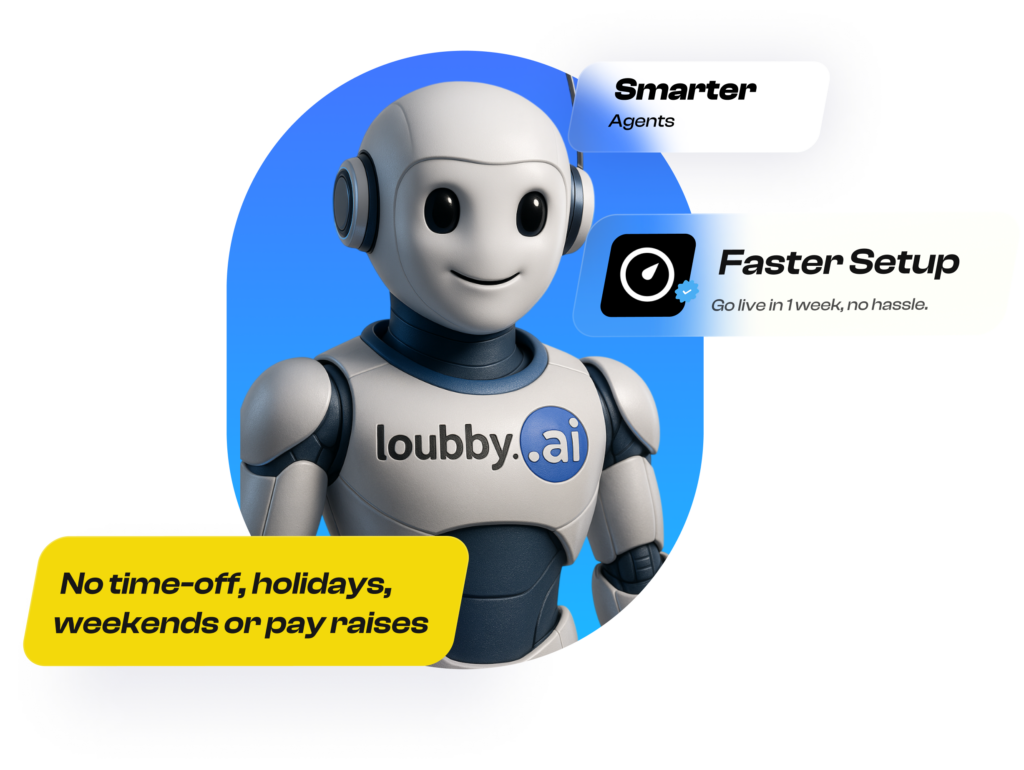In today’s fast-evolving business landscape, globalization has opened up incredible opportunities for companies to expand their talent pools beyond geographical boundaries. The rise of remote work has further fueled this trend, allowing businesses to tap into global talent like never before. However, with these exciting prospects come significant challenges. Managing a distributed workforce across different time zones, cultures, and regulations can quickly become overwhelming.
Enter Artificial Intelligence (AI)—a game-changing force that is reshaping the future of workforce management. AI-powered solutions have the potential to revolutionize how companies recruit, manage, and scale their global teams, streamlining operations while reducing human error and inefficiencies. This blog explores why AI is the key to scaling your global workforce and how it can unlock new opportunities for growth.
The Challenges of Managing a Global Workforce
Before delving into AI’s transformative role, it’s essential to understand the complexities of managing a global team. Businesses that hire internationally face a variety of challenges, such as:
- Regulatory compliance: Different countries have unique labor laws, tax regulations, and employment standards that companies must adhere to. Keeping up with these ever-changing rules can be time-consuming and costly.
- Payroll management: Coordinating payroll across multiple currencies and ensuring timely payments in compliance with local laws adds another layer of complexity.
- Cultural differences: Effective team collaboration requires understanding and bridging cultural gaps, which can hinder communication and performance.
- Time zone coordination: Balancing work schedules across multiple time zones can affect productivity and create challenges in fostering team collaboration.
- Recruitment challenges: Finding and vetting talent from different regions can be daunting, especially when it comes to identifying the right candidates who align with your company’s needs.
These challenges can become significant roadblocks to growth if not addressed properly, especially as businesses scale. That’s where AI comes into play.
How AI is Revolutionizing Workforce Management
AI is transforming workforce management by offering innovative solutions that streamline recruitment, payroll, compliance, and performance tracking. Here are some key areas where AI can make a significant impact on scaling your global team:
1. AI-Powered Recruitment
Traditional recruitment processes are labor-intensive, time-consuming, and prone to bias. AI tools are changing the game by offering automated talent discovery and matching solutions. These tools use machine learning algorithms to analyze large pools of candidates, matching them with job openings based on their skills, experience, and cultural fit.
AI-driven applicant tracking systems (ATS) can sift through thousands of resumes in seconds, identifying the best candidates for specific roles. They also automate communication with applicants, streamlining the hiring process and improving the candidate experience.
Additionally, AI eliminates unconscious bias in recruitment by focusing solely on qualifications and relevant experience, which leads to more diverse teams and better hiring decisions.
2. Workforce Optimization and Performance Management
Managing a distributed team can be challenging when it comes to tracking performance and ensuring consistent productivity. AI-powered performance management tools provide real-time insights into employee engagement, productivity, and job satisfaction. By analyzing data on work patterns, project completion rates, and team collaboration, these tools can identify potential bottlenecks and offer solutions to improve performance.
AI can also help personalize learning and development plans for employees by identifying skill gaps and recommending relevant training courses. This not only helps with employee retention but also ensures that teams remain competitive and equipped with the latest skills.
3. Automated Payroll and Compliance Management
One of the most significant challenges of managing a global workforce is ensuring compliance with different labor laws, tax regulations, and payroll systems. AI-driven payroll management solutions automate these complex processes by calculating wages, handling tax deductions, and ensuring that payments are made on time, regardless of location.
AI can also monitor changes in local labor laws and update payroll systems accordingly, reducing the risk of non-compliance penalties. This automation frees up valuable time for HR and finance teams, allowing them to focus on strategic tasks rather than administrative duties.
4. Enhanced Communication and Collaboration
Effective communication is the backbone of any successful global team. However, managing communication across different time zones and languages can be challenging. AI-powered tools such as natural language processing (NLP) and machine translation can break down language barriers, allowing team members to communicate seamlessly.
AI-driven chatbots can also assist with day-to-day queries, providing instant responses to frequently asked questions and ensuring that employees have access to the information they need, regardless of time zone differences.
5. Predictive Analytics for Strategic Decision-Making
AI excels at analyzing large datasets to uncover patterns and trends. In workforce management, predictive analytics can help businesses anticipate future needs, such as identifying potential skill shortages or predicting employee turnover. By leveraging this data, companies can make proactive decisions regarding recruitment, resource allocation, and team expansion.
For example, AI can analyze market trends to forecast which skills will be in demand in the near future, helping companies to strategically hire and train their teams accordingly.
Why AI is Essential for Scaling a Global Team
Scaling a global team is no small feat, but AI makes it significantly more manageable. Here’s why AI is the key to successfully scaling your workforce:
- Efficiency: AI automates time-consuming tasks such as recruitment, payroll, and compliance, freeing up resources to focus on growth and strategy.
- Cost savings: Automating HR functions with AI reduces operational costs, minimizes human errors, and improves accuracy in areas such as payroll and compliance.
- Diversity and inclusion: AI-driven recruitment tools reduce bias, leading to more diverse and inclusive teams.
- Real-time insights: AI provides real-time data on team performance, employee engagement, and market trends, enabling better decision-making.
- Scalability: As your business grows, AI can scale with you, managing larger teams and more complex HR processes without adding administrative burdens.
Loubby AI: Transforming Global Workforce Management
Loubby AI is at the forefront of leveraging AI to revolutionize workforce management. Our all-in-one platform is designed to help businesses seamlessly manage global teams by providing AI-powered recruitment, automated payroll, and compliance solutions. From discovering top African talent to ensuring timely payroll and compliance with local regulations, Loubby AI simplifies the complexities of managing a global workforce.
Our platform also includes tools for performance tracking, onboarding automation, and workforce optimization, allowing businesses to scale their teams efficiently and effectively.
Conclusion
The future of workforce management lies in AI. As businesses continue to expand globally, AI offers the solutions needed to overcome the challenges of managing distributed teams, ensuring compliance, optimizing performance, and improving communication. By adopting AI-powered tools, companies can unlock new levels of efficiency and scalability, allowing them to focus on what truly matters—growth and innovation.
If you’re ready to scale your global team and want to learn how AI can transform your workforce management, contact us at Loubby AI today. Let’s build the future of work together.







